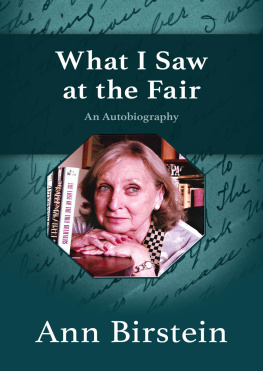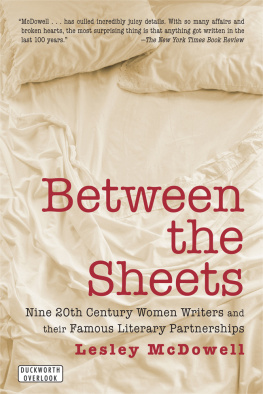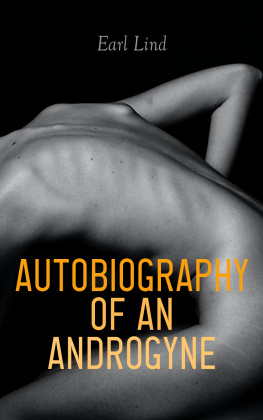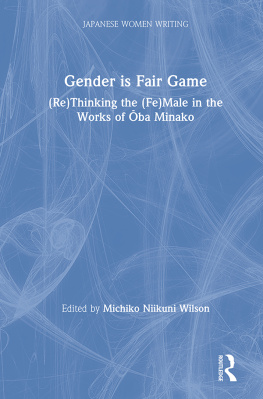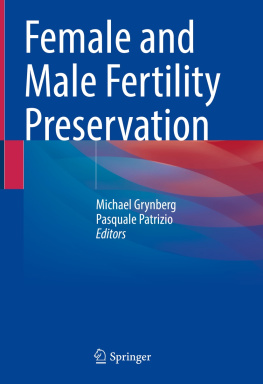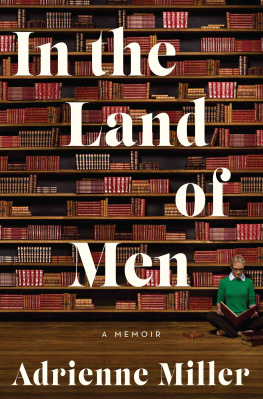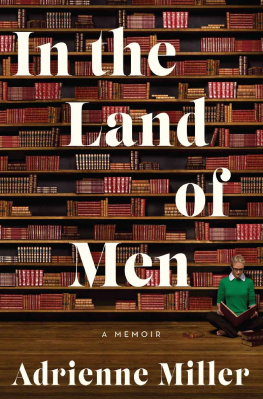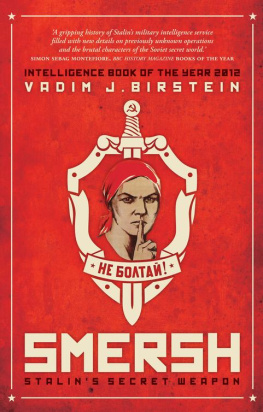Ann Birstein - What I Saw at the Fair: An Autobiography
Here you can read online Ann Birstein - What I Saw at the Fair: An Autobiography full text of the book (entire story) in english for free. Download pdf and epub, get meaning, cover and reviews about this ebook. year: 2015, publisher: Open Road Distribution, genre: Non-fiction. Description of the work, (preface) as well as reviews are available. Best literature library LitArk.com created for fans of good reading and offers a wide selection of genres:
Romance novel
Science fiction
Adventure
Detective
Science
History
Home and family
Prose
Art
Politics
Computer
Non-fiction
Religion
Business
Children
Humor
Choose a favorite category and find really read worthwhile books. Enjoy immersion in the world of imagination, feel the emotions of the characters or learn something new for yourself, make an fascinating discovery.
- Book:What I Saw at the Fair: An Autobiography
- Author:
- Publisher:Open Road Distribution
- Genre:
- Year:2015
- Rating:4 / 5
- Favourites:Add to favourites
- Your mark:
- 80
- 1
- 2
- 3
- 4
- 5
What I Saw at the Fair: An Autobiography: summary, description and annotation
We offer to read an annotation, description, summary or preface (depends on what the author of the book "What I Saw at the Fair: An Autobiography" wrote himself). If you haven't found the necessary information about the book — write in the comments, we will try to find it.
What I Saw at the Fair: An Autobiography — read online for free the complete book (whole text) full work
Below is the text of the book, divided by pages. System saving the place of the last page read, allows you to conveniently read the book "What I Saw at the Fair: An Autobiography" online for free, without having to search again every time where you left off. Put a bookmark, and you can go to the page where you finished reading at any time.
Font size:
Interval:
Bookmark:

What I Saw at the Fair
An Autobiography
Ann Birstein
For Bel Kaufman
and her grandfather
Sholom Aleichem
Chapter 1
Honey was not the name on my birth certificate, though I was called that. Nor did it have anything to do with my long blond hair. (My mothers hair, of course, had once been blonder. Aggravation from me had made her go gray.) My hair wasnt golden anyhow, but kind of silvery, as if it belonged to a little old lady, which was sort of what I looked like at six, dubious expression, dark circles under my eyes and all. But Honey was how the goyim in Hells Kitchen, where we lived, interpreted my Yiddish name, which was actually Chana, and familiarly Chanie. Goyim had no gift for the guttural. At home I was also often Channele, a diminutive. In school, which I had just started, I became Anna, another person altogether.
This was already a big complicationthese days it might even be a prelude to schizophrenia. However, multiple personalities werent in fashion yet, so nobody gave it a thought. And anyway, all our lives were split in two. We were all different people with different brand names: one for the outside American world, the other for domestic consumption. To start at the top, my father, Rabbi Bernard Birstein, was Beril, but only to relatives and to other rabbis. My big brother, Samuel Joseph, was Yossie at home. Then came my sister Sarah aka Sookie, and, by a kind of dreary bad luck that plagued her whole life, Malke Leah wound up saddled with Mildred. Somehow my mother remained Clara in any language, and Julia, the child of her heart, remained Julia. I think they had no patience with complex personalities.
We had recently moved from a railroad flat on Forty-seventh Street between Eighth and Ninth Avenues, where my fathers synagogue and my dreaded elementary school were located side by side, to Fifty-first Street, also between Eighth and Ninth, which wasnt much of a step up, though this larger apartment had a bathtub in the bathroom instead of in the kitchen and also a telephone. The turmoil inside was pretty much the same. Cooking, crying, laughing, fighting. Food at all times but you had to wait hours after you ate meat to eat dairy. How we all slept would have made a sardine packager proud. Sarah and Julia and I spent the night in a tiny bedroom with two single beds jammed together, the three of us head to toe. Mildred slept on a daybed in the dining room, where all business was conducted when visitors came, whether she was actually asleep or not. Yossie had his own room, tiny though it was, because he was a boy, and Mama and Papa had a small bedroom off the dining room with just enough space for a double bed and a dresser. We must have had closets because we had clothes, Sarah/Sookie especially since Mama said she put her whole salary on her back. But where these closets were I have no idea. In any case, clothes were produced when morning came. And then everybody went off to the outside world. Yossie to study journalism in college as S. Joseph Birsteinhe had taken to writing letters to various publications, saying such things as kudos to Timevery impressive. But then he was the intellectual in our family, as if being the oldest and only boy werent enough. Mildred went to her day job as an assistant to a dentist near Madison Square Garden, whose chief clientele for obvious reasons was circus performers, cowboys, and prizefighters, then to Hunter College at night. Julia was off to Washington Irving High School to be the same obedient drone she was at home. Sarah, after first depositing a totally unwilling me at PS 17, continued on to her job at the Film Center on Forty-second Street in one of her natty Sookie outfits, maybe a navy blue fitted reefer coat and a hat to match tilted over one eyebrow. She too, like Millie, went to Hunter at night, but in her case it sounded glamorous. Daddy had left before anybody was up to go to shul, conduct services, and direct his other extremely important affairs. Mama stayed home to start another day which, to hear her tell it, began and ended in bitterness and unappreciated toil.
Outside, a totally other world reigned, the strange world of Christianswith dark bars run by retired prizefighters, unkosher restaurants, movie houses, the local Automat, and inevitably PS 17, a huge stone Gothic fortress that smelled of sour milk for the free lunchers, whose parents were on relief. (An almost unmentionable disgrace.) Inside there were long silent lines of silent children waiting for a bell to ring. A heart stopping change from home, where everybody carried on all the time. But this silence was clearly the American way. Silence at desks, hands clasped in front. No speaking unless spoken to. Having to go to the bathroom was an even worse crime, which was another big difference. At home, bodily functions were frequently alluded to, bowel movements a big topic. (When I was very little, my father, a proud Litvak, would discreetly ask me whether I had been a Litvak or a Galitzianer that day.) There were only a few Jewish children in the school on account of it being in Hells Kitchen. Everybody else was either Irish or Italian, a basically scary situation. But the Italians, though technically Gentiles, were in the same boat as Jews, linguistically speaking, which made them less of a menace. The Irish, it was plain, were the real Americans. Not only were they Gentiles, they actually spoke English. At home! It was their native tongue. There couldnt be anything more American than that, especially when they were glibly spewing out their catechism.
Making the situation crystal clear was the fact that PS 17 was a Tammany stronghold, The principal was a Miss Bohan, sister of a judge, and the teachers, all normal school graduates, were also political appointees. Such as Miss Riordan, who hated children, always wore black, had double forearms, and took a grim pleasure in teaching grammar. But they were all named Miss, and they all seemed to hate children, Jewish children especially, though some were ecumenical. There was Miss Bartlett, Miss Yeats, Miss Ward. Sometimes a Mrs. snuck in, which made for a somewhat kindlier atmosphere, but introduced other problems, as with Mrs. OConnor, who smilingly insisted that we put a period after every title, and that the English assemblage of lawmakers be pronounced Parly-a-ment. She also called me to her desk to explain after I had picked bluestocking from a multiple-choice question as a definition of pedant, that a pedant was something you hung around your neck. Metaphorically this may be true, but I didnt know that until later. It didnt matter that technically she was dead wrong. Teachers were always right, except for Mrs. Sinsheimer in connection with the notorious affair of her bloomers, a matter that I will come to later.
Each school day, trudging home the long four blocks for lunch, I toyed with the idea of never going back there. But that would have entailed telling my mother I was sick, and then she would clutch her heart, carry on, and call my father at the shul to come home and take my temperature that way. My mother couldnt read English, and Yiddish only with difficulty, and she expanded this to numbers as well as letters. It was a much luckier day when I got a quarter for lunch at the local Automat, a vegetable plate because I was kosher, featuring mashed potatoes, peas, and Harvard beetswhich I considered terribly Ivy League and still doeaten at a table that said LADIES ONLY . Everything that wasnt vegetables or dairy was out. Food represented other vast differences between them and us, being kosher only part of it. Social workers were always coming by to give us questionnaires about what we had for breakfast. One of the Jewish kids wrote down skimbles and bumbles, which translated as skinless and boneless sardines. But I gave myself a lovely American breakfast of cereal, milk, toast, and scrambled eggs. This was my first real fictional creation, since my actual breakfast was a bagel and coffee, and I wouldnt have had it any other way. Yossie said this wasnt right, considering my agehe started saying it when I was sixbut Mama said I was stubborn and what could she do?
Font size:
Interval:
Bookmark:
Similar books «What I Saw at the Fair: An Autobiography»
Look at similar books to What I Saw at the Fair: An Autobiography. We have selected literature similar in name and meaning in the hope of providing readers with more options to find new, interesting, not yet read works.
Discussion, reviews of the book What I Saw at the Fair: An Autobiography and just readers' own opinions. Leave your comments, write what you think about the work, its meaning or the main characters. Specify what exactly you liked and what you didn't like, and why you think so.

